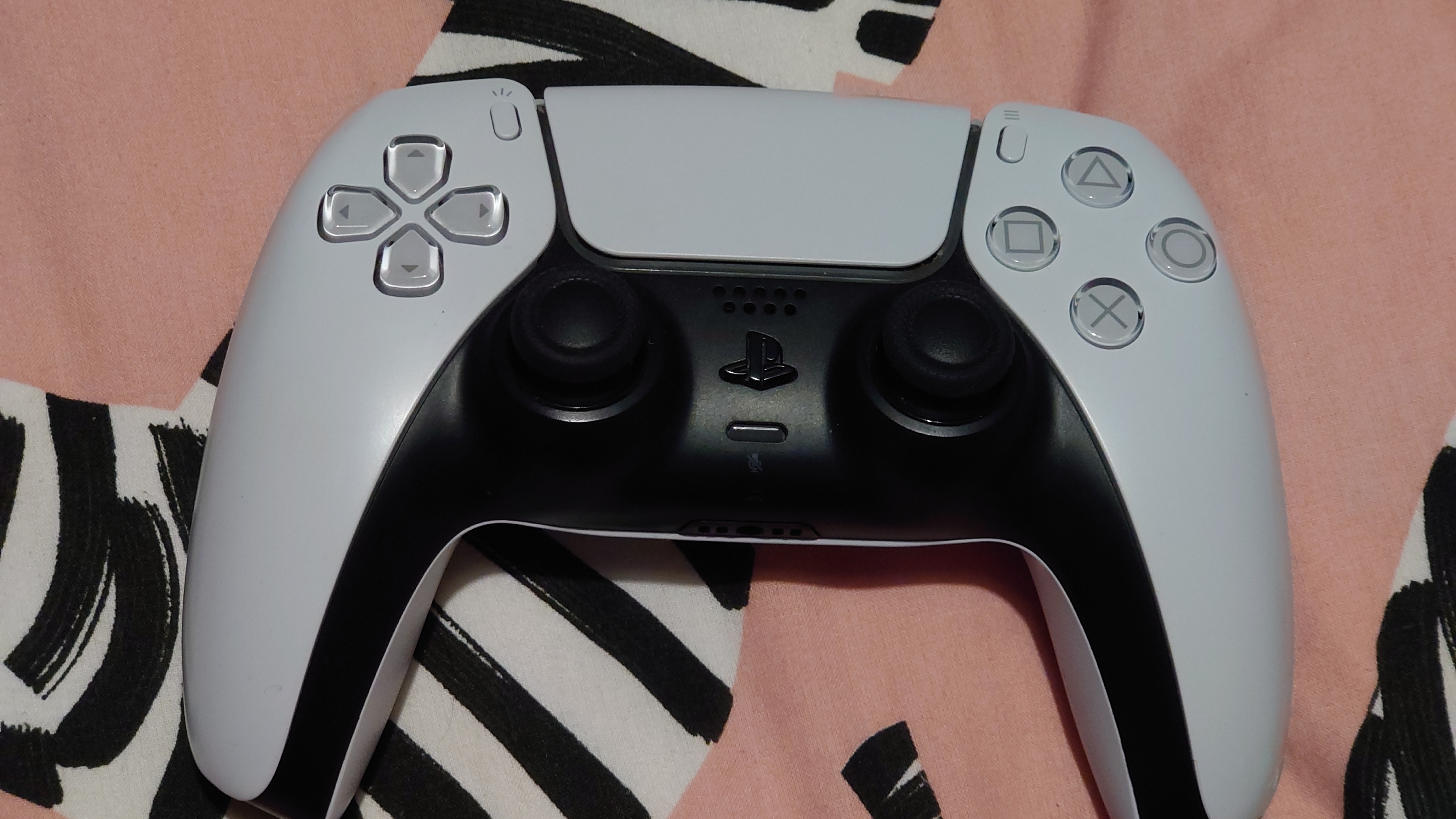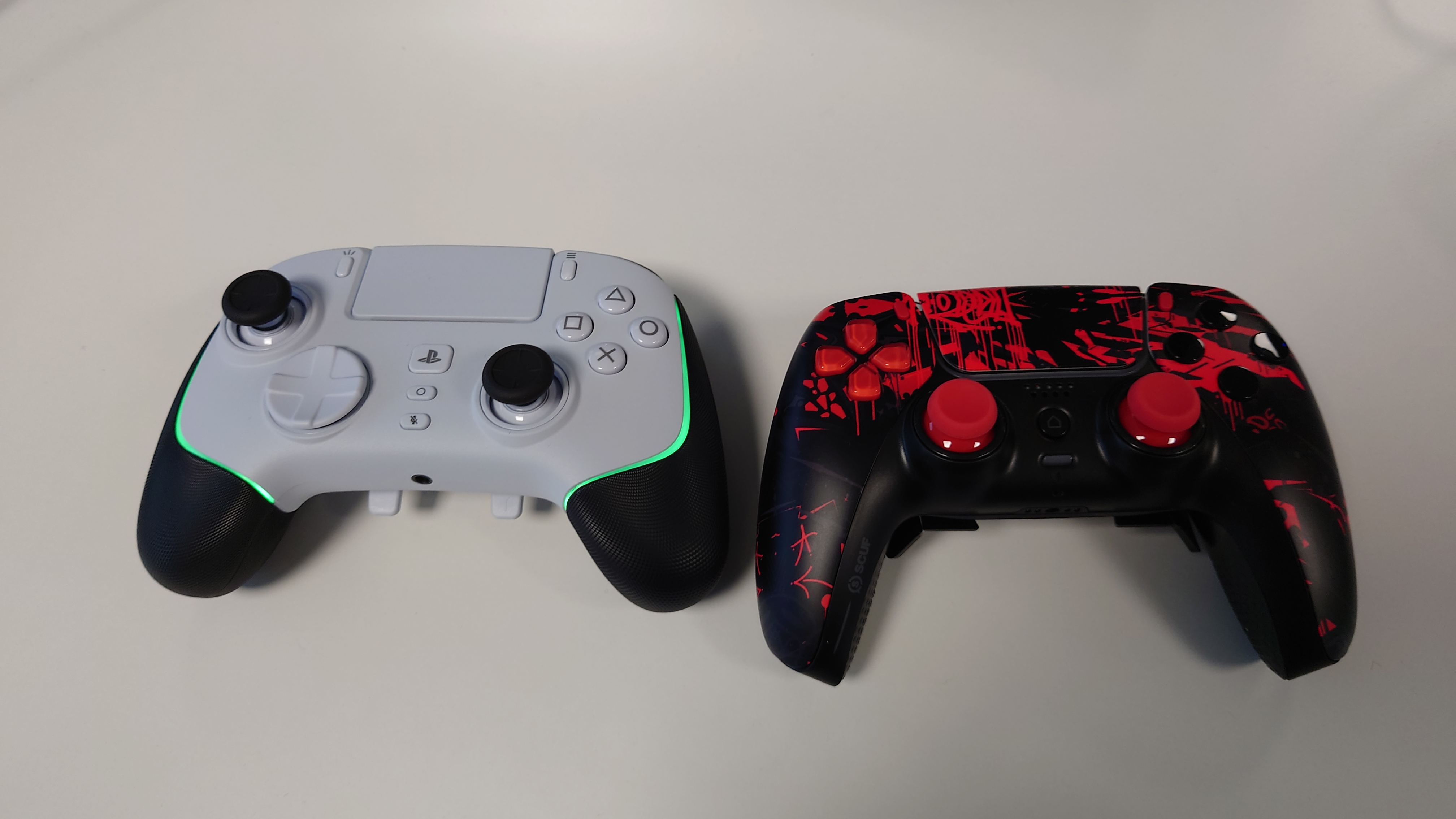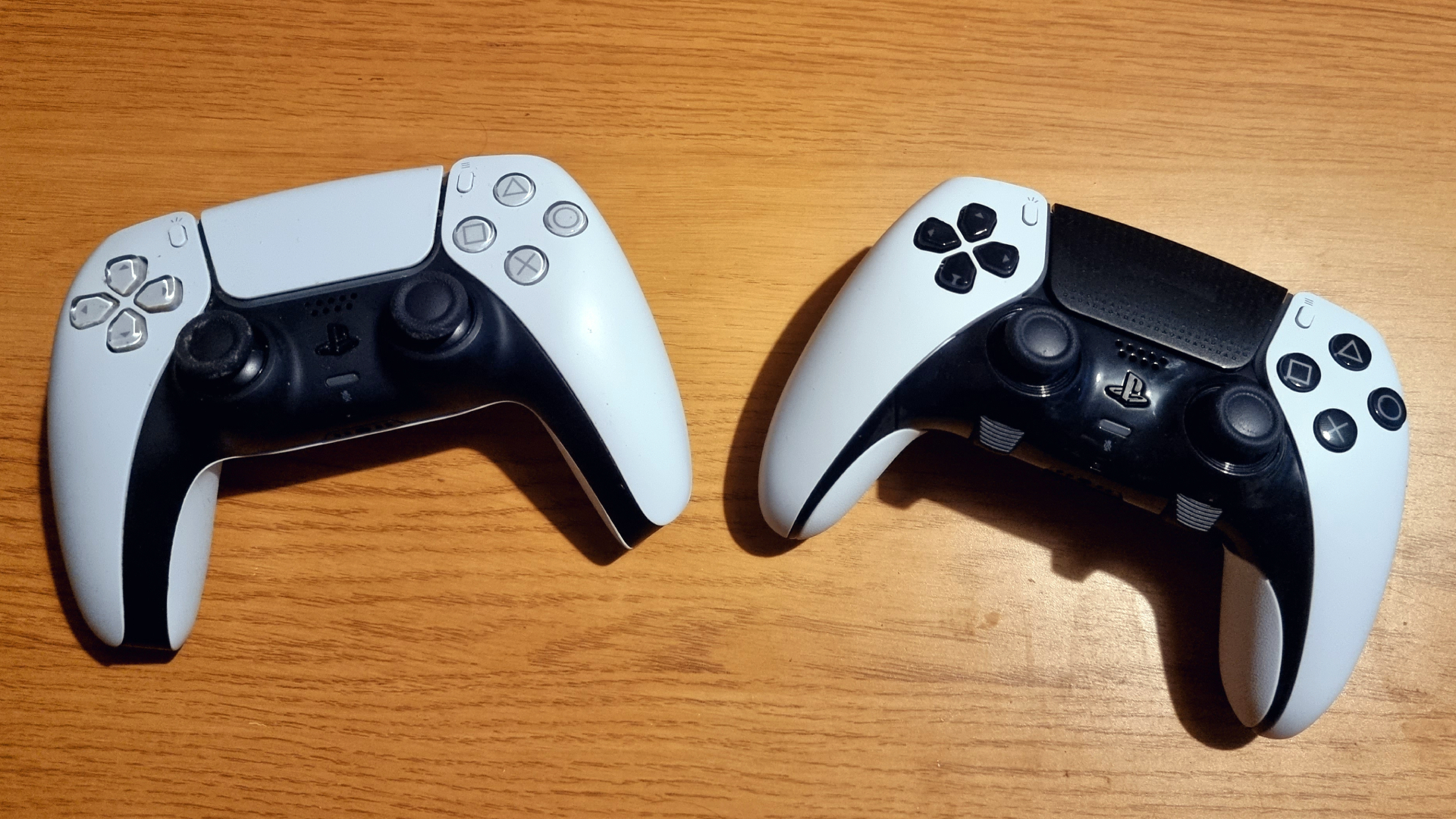You shouldn't bother with a PS5 Pro controller, the DualSense is just too good
Wait a minute

Sign up for breaking news, reviews, opinion, top tech deals, and more.
You are now subscribed
Your newsletter sign-up was successful
There’s a growing market for PS5 Pro controllers, not least Sony’s own DualSense Edge. You may consider picking up an advanced gamepad, tempted by customizable rear paddles, slip-resistant grips, and fancy color schemes. Well, I’ve reviewed several PS5 Pro controllers recently, and, in all my testing, I can’t shake the feeling that they can’t outclass the standard DualSense controller.
The DualSense is a remarkable device, featuring haptic feedback and adaptive triggers, along with an ergonomically designed grip which makes it our pick for the best PS5 controller on the market. It makes the ‘need’ to dial up to a pro controller less pronounced than with other console generations.
That hasn’t stopped brands such as Scuf and Razer from attempting to innovate on the established formula. Recently I looked at the two debut models for the PS5, the Scuf Reflex Pro, billed as “the first high-performance controller created for PS5” according to parent company Corsair, and the Razer Wolverine V2 Pro which was released earlier this month.
Both controllers have redeeming qualities. The Scuf Reflex Pro is highly customizable, letting you create a unique color scheme for your gamepad. And, built on the foundation of the DualSense, it performed well. With the Razer Wolverine V2 Pro, you lose the DualSense’s haptic feedback and adaptive triggers for a concentrated eSports experience, gaining features such as a microswitch D-pad, trigger locks, and remappable rear paddles. However, I found those new features didn’t make up for what you lost. Though that’s not the biggest problem holding these pro pads back: the price.

The Scuf Reflex Pro and the Razer Wolverine V2 Pro are too expensive for what you’re buying. The Scuf controller currently retails at $219.99 / £219.99 (roughly AU$315) and the Razer gamepad sells for $249.99 / £249.99 / AU$475.95. That’s over three times the price of Sony’s official controller. While I appreciate some of the extra features, can’t recommend them at price points that steep.
Sony itself has released its own PS5 Pro controller, the DualSense Edge, and rather than the definitive pad it could have been, like Microsoft’s own Xbox Elite Wireless controller Series 2, it doesn’t justify its existence. You get extra functionality on top of the standard DualSense experience – such as rear paddles, function buttons, and trigger stops – it doesn’t address the only real flaw of the standard DualSense: battery life. In fact, it's actually got worse.
You’re also paying $199.99 / £209.99 / AU$339.95, for the DualSense Edge, which, while slightly better than the two third-party offerings, is still creeping up to half the price of the PS5 console itself. In our write-up, we said: “it’s a luxury purchase and still overpriced for the slight upgrades it offers”.
Sign up for breaking news, reviews, opinion, top tech deals, and more.
After viewing all these PS5 Pro controllers, I just keep coming back to the fact that I can recommend a single one of them over the standard DualSense. Until there’s a gamepad that is competitively priced, keeps all of the DualSense’s functionality, and adds something new to the controller, you’re better off sticking with Sony’s hardware.

Who are PS5 pro controllers actually for?
PS5 Pro controllers aren’t for your everyday gamer. They cater to those in the competitive FPS and fighting game scene to keep inputs as low-latency as possible while also being lightweight. The fundamental flaw with the current market options is the high price tag. None of the models we’ve reviewed justify their cost.
Why is the DualSense controller so good?
We love the DualSense for its features and feel in the hand. You’ve got adaptive triggers and haptic feedback which are supported by many of the best PS5 games. This means that there’s a level of immersion that you’re just not going to get anywhere else.

Formerly TechRadar Gaming's Hardware Editor, Aleksha McLoughlin is now a freelance writer and editor specializing in computing tech, video games, and E-commerce. As well as her many contributions to this site, you'll also find her work available on sister sites such as PC Gamer, GamesRadar, and Android Central. Additionally, more of her bylines can be found on Trusted Reviews, Dexerto, Expert Reviews, Techopedia, PC Guide, VideoGamer, and more.